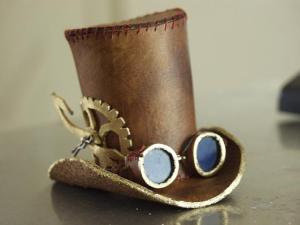
It’s funny how something as simple as a small boy’s open face can tumble even the firmest defenses.
Sitting at my desk at school, surrounded by half-filled mugs of coffee, dog-eared laboratory manuals, and fermenting laundry; pressed from all sides by assignments outstanding; due dates looming like dark clouds, I decided I had had enough. With a single gesture, I cleared my desk, sending self-important documents sprawling across the floor. Picking a pen and a few sheets of paper out of the wreckage, I began to write:
Zooming down the highway at seventy-five miles an hour, the young woman reviewed her time-table for the day. Before setting out on her errands, she had dutifully visited the tiny apartment her mother and grandmother had shared since her mother had abruptly left her father in mid-January. After thirty minutes of polite conversation, thirty minutes during which her mother had self-consciously picked at her ragged cuticles with large-knuckled fingers, thirty minutes during which her grandmother had rocked, quenched and quiet, in her oversized rocker, the young woman had excused herself.
She had gone on to the bank and then to the post office. Sometime before she headed back to campus, she would stop by the grocery store to pick up stockings for her grandmother and some cereal for herself. If she were lucky, she would have time to pick up her father’s suit at the dry cleaners.
But first things first….She was now on her way to visit her father, who had been admitted to the hospital with a bleeding ulcer. A week ago, he had almost died; but a second surgery and three transfusions had pulled him through. On her way to the hospital, she would stop at the house to look for his checkbook and gather his mail—today was the day she was to help him pay the bills. The daughter visualized her father’s fleshy and stubborn face atop his flaccid white body.
As she pulled up to the house, she noticed that the garbage cans were overflowing. They looked as though they had been sitting in the driveway for a week. The grass had grown tall since she had last been home, and someone’s lark had left tire marks, deep black scars, in the damp spring soil. Cigarette butts and bottle caps, a sure sign of her brother’s habitation, littered a path worn from the drive to the front door. In all the windows, the curtains had been drawn, adding to the property’s forlorn appearance.
Cautiously, she turned her key in the lock and stepped inside. Ugh! A cloud of stale marijuana smoke burned her eyes. She squinted in the darkness. As she made her way to the window to open the drapes and let in fresh air, she stumbled over a disarray of pillows and blankets mounded in the center of the living room.
When she had opened the drapes and thrown open the windows, she stood back in surprise. The house’s emptiness shocked her. At least her brother had had the courtesy to move most of the furniture and breakables out of the way before having a party. She shuddered to think of all that would have been ruined or missing had he not taken these precautions. Still, without the pictures and knick-knacks, the upstairs seemed gray and lifeless. Perhaps it was right that they should have been moved. The objects her mother had lovingly arranged throughout the house had perpetrated a cheerful lie. At least now the deceit had ended. Her mother had walked out three months ago, weary of her father’s bickering and her brother’s wildness. She would not soon return. Why shouldn’t the rooms of the house bear witness to the facts?
Now, in the afternoon shadows, the remaining cabinets gaped like empty mouths; white spots replaced the floral prints and showed the walls to be badly in need of paint. Butts and stains had rooted themselves in the brown carpet like persistent weeds. No scents of cooking or cut flowers warmed the house now. Instead, the air was ripe with the odors of stale beer and smoke–and vegetables rotting in the refrigerator.
She studied the huge black speaker strategically placed in a corner of the living room and facing her now with utmost contempt. Her brother had taped its wire to the carpet with strips of electrical tape, forming a snake-like suture leading back into his room and the mother system. Following this trail, his sister tiptoed back to his room. She expected to find him asleep, as usual, resting after a long night of partying, but he was not in his bed. Thank God he was not there! Had he threatened her today, nobody would have been around to help her.
Sleeping, he resembled a good-natured giant, his oversized hands and feet protruding from his wiry frame and dangling off the bed, which had become too short to contain him. And his face…he had prided himself on the scruffy beginnings of a mustache. Seeing him asleep, one could almost forget his temper, the drugs, the late-night police visits….
She let out a deep sigh and closed her eyes in momentary relief.
In an instant, relief gave way to anger. Didn’t her brother EVER think of anyone but himself? Of course not! He had a way of worming his way out of every predicament, disclaiming all of the responsibilities and escaping most of the consequences of his doings. He simply did whatever her wished, knowing that eventually, someone else would be forced to pick up his tab. What would happen now? Her father was to be released from the hospital in a few days. Was he to come home to this? Was it any wonder he had developed an ulcer?
Ignoring the knot in her stomach, she tried to focus her energies on the problem at hand. She willed the larger issues to the back of her mind in order to treat their symptom. She would just have to squeeze out a few hours to do some straightening and cleaning.
Where should she begin? She could not move the heavy furniture herself, and yet she knew she could elicit no cooperation from her brother. Her sister would be of no assistance. She had moved out a week ago, her green eyes shot with red, and was still too uneasy to return to the house. Her mother…? She would not ask this woman to abandon her new-found adolescence for motherhood in all of its responsibilities. Enough! She would concentrate on the positive—how she could serve her father and how she should be glad to be able to serve him in this way. With her hands on her hips, lips pursed, she surveyed her situation and determined what she could accomplish alone.
Gathering up the soiled bedding, she sang to herself. She sang as she emptied hampers and retrieved underclothes and towels from bathroom floors. By the time she had hauled all the bundles down to the laundry room, she was weary of Joni Mitchell and her melancholy lyrics and searched her mind for lighter tunes.
Time flew as she straightened and scrubbed, dusted and vacuumed. Her mood began to lift. A gentle breeze had cleansed the air; and, like a tender rain, the pine-scented cleaner had bathed the house in freshness. The sinking sun warmed the rooms, repossessing them one by one.
Brave in her triumph, the young woman dared to touch the large speaker which still defaced the living room. She pulled up the black tape and managed to push the beast back into her brother’s room and shut the door. She felt the satisfaction of one who has vanquished a trespasser. Flicking back her damp bangs with the palm of her hand, she felt ready to face her own room.
She thrust open the door and met with the sound of breaking china. Now she knew where her brother had stored the articles he had removed from the other rooms. Appliances, boxes of breakables, and a stray bong prevented her from opening the door very far and forced her to squeeze her way through for a closer look. After a quick examination, she retreated, not desiring to compromise her good cheer. She would reclaim her own room another day. Today she had neither the time nor the energy to wonder who had slept in her bed, or what had become of her jewelry box, or what that was floating in her toilet. She closed the door and returned to the living room for one last inspection.
She was genuinely pleased with what she had been able to accomplish. Small victories such as these made the larger battles seem less formidable. With every struggle, she acknowledged, comes a bounty of good. Silently she thanked God for the beautiful weather. She thanked Him for the fact that her father would be leaving the hospital shortly… and that she had entered the house before he had.
She put behind her the times she had attempted, herself, to mend and patch and pick up the loose ends in her household. She put behind her the times she had believed in herself, her mother, her father, her brother, her sister, and been disappointed. She felt strong. She had hope. Soon things would change—she had prayed that they would. God had heard her. Soon there would be an end to this vicious spiral, the seemingly endless chain of bitterness and rebellion. Yes, she had hope: vibrant hope, realistic hope—realistic because she knew that whatever its form, God’s answer was at hand. Her mother might never return; her brother might never change from his abusive lifestyle. Still, she knew relief would come.
Looking out the picture window at the blooming dogwood, she observed Mark, the little boy from across the street, approaching her house. With large, clumsy steps, he bounced up the driveway, holding his cupped hands importantly before him. The girl smiled to herself. She wondered what he could be bringing this time… an injured bird, a dandelion, a fistful of cookies…?
He stopped before he reached the house and planted his feet steadily and deliberately, as if to brace himself. For a moment he paused. Then he rubbed his hands together, spreading a handful of refuse across the lawn. With a look of innocent satisfaction, he turned and started for home.
Violently, the girl flung open the door. In a second she had spun the child around.
“Just what do you think you are doing?” she screamed, her flushed face inches from his.
Wide-eyed and without comprehension, he looked first into one pupil and then the other. He hesitated.
“My father was mad because your brother partied all night.”
Without realizing it, she had been holding her breath. Now, pierced to the marrow, she allowed it to escape, slowly deflating her rigid shoulders. Wearily, she reprimanded him.
“Why didn’t you at least throw them in the garbage can?” She pointed at what she now recognized as several hundred of her father’s address labels. How had they ended up on the neighbor’s lawn? Mark must have had quite a job to retrieve them all.
The boy’s eyes turned to liquid, and his chin trembled. Finally he replied.
“I didn’t know,” he wimpered, squirming.
Taking a step back, she scrutinized the offender. He was just a little boy, a child of six—not unlike her own brother at that age.
“Oh,” she answered, no longer aware of the child, who, frightened, turned and sprinted for home.
She remained for a moment in silent contemplation. A moment later, she returned to the house and began to cry.
I returned to the house and began to cry. Later, in the safety of my dormitory room, I picked up a pen and a few sheets of paper and began to write….
Image credit here



